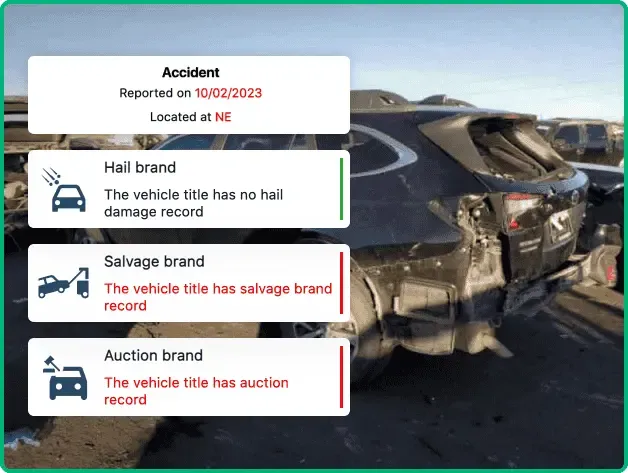| Clean Title | Branded Title |
|---|---|
| A clean title means the vehicle has never been declared a total loss by an insurance company. | A branded title indicates that the vehicle has a significant history, such as being salvaged, rebuilt, flood-damaged, or declared a lemon. |
| These cars usually hold higher resale value and are easier to insure. | Even if repaired, branded vehicles may have lower market value and can face insurance or financing restrictions. |
| The vehicle has no history of accidents, rolling odometer, or even being stolen. | Buyers should always verify the type of brand and inspect the car before they decide to purchase the car. |


Year, Make, Model
2015 Ford F-150
Mileage
45,000 miles
Title Status
Clean Title
Accident History
No accidents reported
Price
$28,500

Year, Make, Model
2015 Ford F-150
Odometer Rollback
Actual: 78,000 miles
Title Issue
Salvage Title (Rebuilt)
Accident Found
Major accident in 2018
Fair Market Value
$15,500 - $18,000
